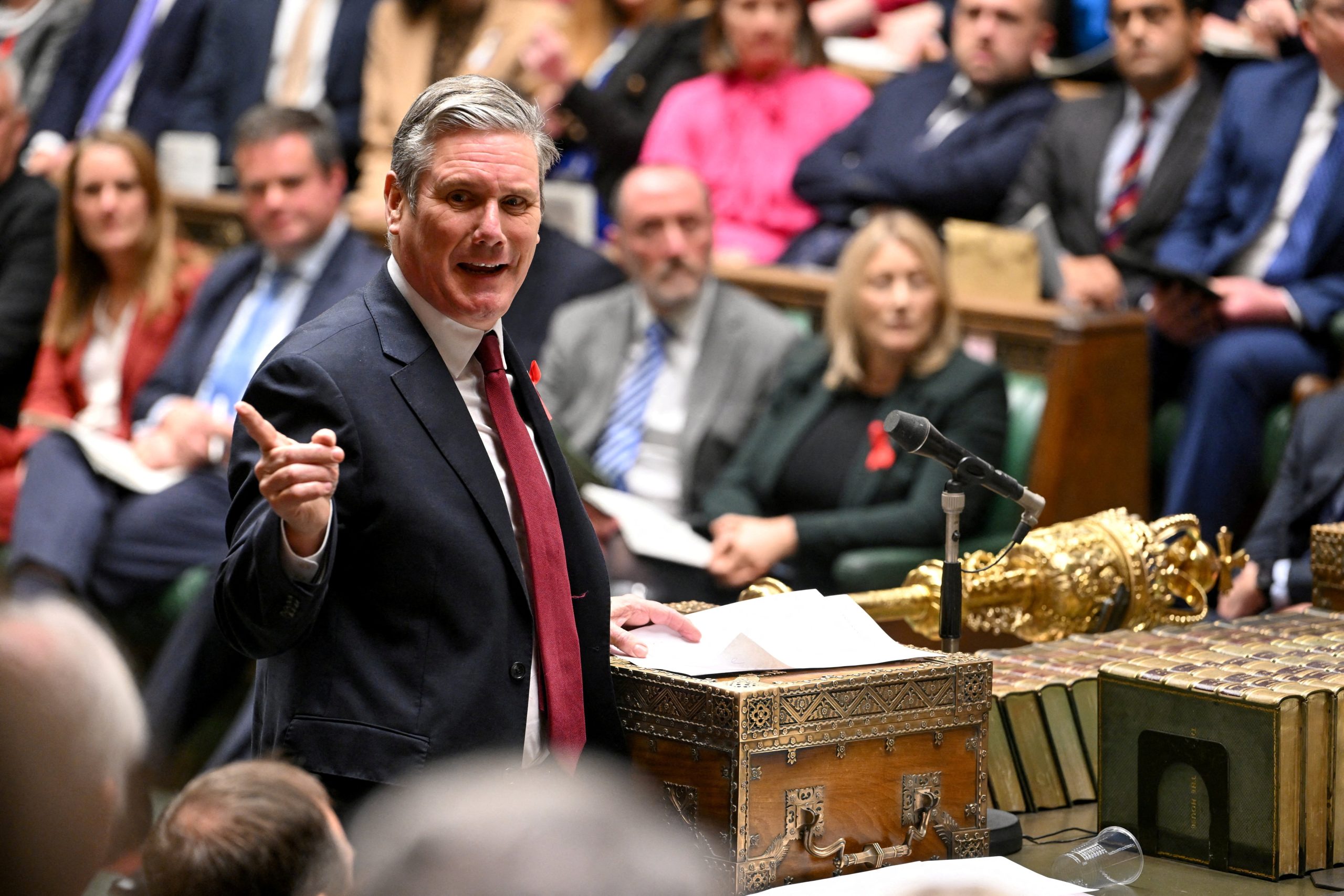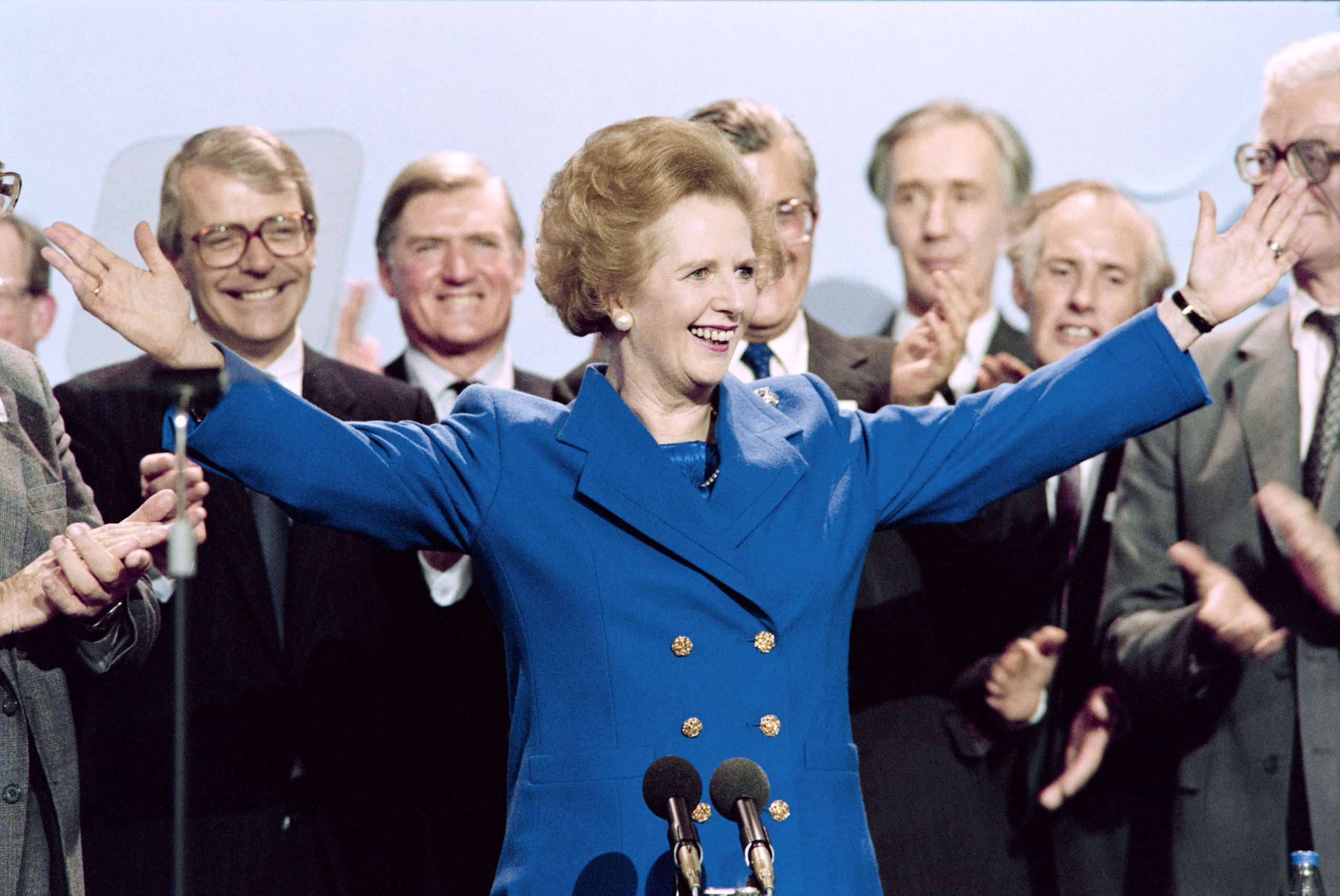Margaret Thatcher, a polarizing figure in British politics, is being mentioned more positively by the Labour Party as they prepare for the upcoming election. Labor leader Keir Starmer and other party members have spoken favorably about Thatcher, signaling a shift to the center since Starmer took over from Jeremy Corbyn.
Previously, under Corbyn’s leadership, such praise for Thatcher would have been unthinkable. Corbyn had criticized her government’s actions, particularly against working-class communities, during the 2019 election.
However, citing Thatcher now suggests a changed stance for Labour, similar to Tony Blair’s “New Labour” movement in the 1990s and 2000s, which adopted some of Thatcher’s policies.

UK Labour Leader (Credits: Reuters)
Labour’s current positioning aims to appeal to voters by presenting itself as business-friendly and economically responsible, areas where it has historically been seen as weak. They draw parallels between today’s economic challenges and those Thatcher faced when she became prime minister in 1979.
Critics argue that Thatcher’s policies led to harsh consequences, which are still felt today due to austerity measures implemented by Conservative governments since 2010.
Despite Labour’s nuanced remarks about Thatcher, some on the left are angered, feeling that the party is betraying its values. They see Thatcher’s legacy as damaging and want to avoid it, not embrace it.

Margaret Thatcher (Credits: The Sun)
Labour’s approach also provides ammunition for Scotland’s Scottish National Party (SNP), where Thatcher remains unpopular. SNP leaders have criticized Labour for aligning with Thatcher’s ideas, aiming to maintain their dominance in Scottish politics.
While Labour’s strategy may risk losing some support, current polls suggest they have room to maneuver. However, how this approach will ultimately affect their electoral prospects remains to be seen.























